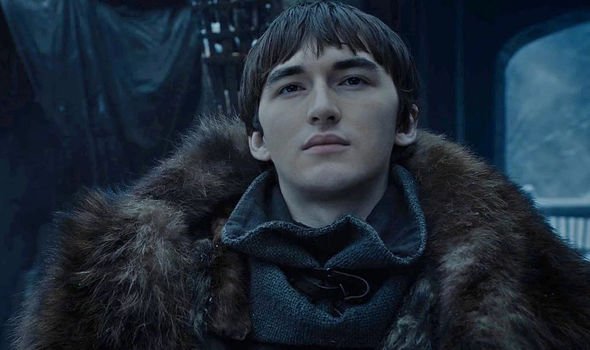As a professional writer, I have my tricks. One of those tricks involves excusing myself to the bathroom just before the bar bill arrives, then climbing out the window and fleeing. Another trick is what I call the Plane Crash Ending (PCE). I employ the PCE when I’ve got a story without an ending. Maybe it’s a 60,000+ word novel, or a 1500 word short story; either way, I can’t figure out how to end it. So I kill everyone. Every character. I kill them all in whatever way seems feasible. Then I type THE END and put the story aside, and usually when I come back to it I have a better ending in mind.
The PCE is fun. It’s not a viable way to end a story, but sometimes a story can be 90 percent great and then dissolve into a sticky mess at the end. This happens to a lot of stories — including, of course, many stories that do get published or broadcast or released in move theaters. Which leads me to a fundamental question about writing/art: Does a bad ending ruin a good story?
Bran the Broken Indeed
Let’s consider the current ur-example of bad endings, Game of Thrones. I was prompted to think about this subject in the first place by an essay by Michael Walsh over at The A.V. Club, in which he remembers why he fell in love with the show originally. He’s right: Game of Thrones was pretty damn excellent for 6+ seasons. It was grand, it was complex, it was unpredictable (if you hadn’t read the books). And then it was absolutely fucking terrible in its last, oh, ten episodes or so.
I have an acquaintance who can’t forgive a bad ending — so much so that he won’t watch serialized TV shows until they’re finished, because he can’t countenance the wasted time of getting into something only to see it rot in front of his eyes. I get that, but I’m on the opposite side of the question. I think there’s tons of value in the journey.
We used to argue over Lost, another show that (IMHO) devolved into a crapfest in its final season. For a while, that show was intriguing and messy in a good way. Then it kind of rambled into a confusing jumble, but the late-run reset from flashbacks to flashforwards brought me back. Then — again, IMHO — it got really, really awful in its final run. My acquaintance damns the show for eternity for wasting his time. I’m happy I got to experience those truly amazing twists and character beats. It was fun, and a bad ending doesn’t change that.
Or does it? I’ll admit that the re-watch value of a show or a re-read value of a book series goes down if I know the ending will be a frustrating disaster. It’s not that endings don’t matter at all — it’s just that I don’t think they wipe out all the existing value of a work that was good for at least a significant part of its run.
Of course, I am a man who just admitted he has dozens of manuscripts lying around his hard drive with Plane Crash Endings. I am obviously not an authority on this issue. Carry on.

